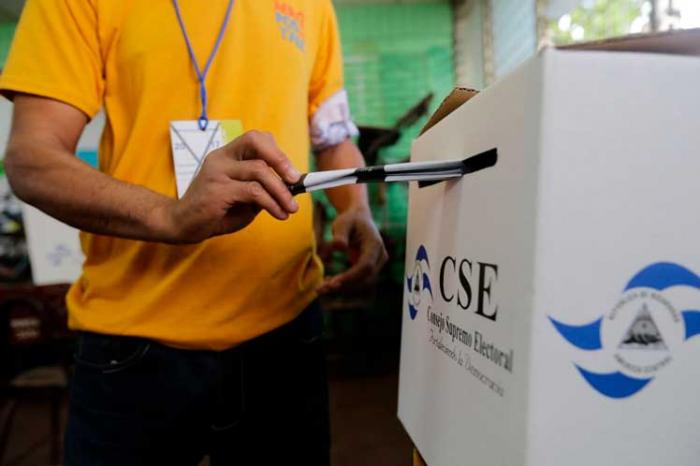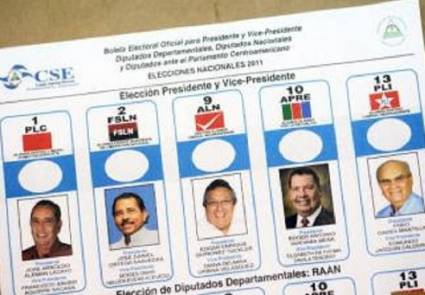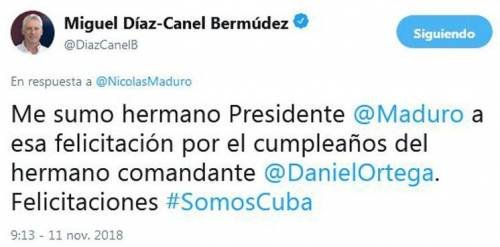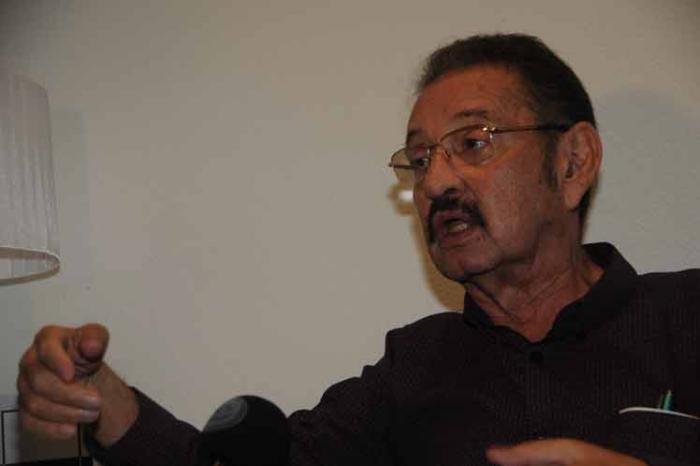Nicaragua 5
Nicaragua goes to the polls

Nicaragua goes to the polls for general elections
In a true civic celebration, calm and safe, more than 4,478,334 Nicaraguans will elect the presidential formula that will head the Executive Power during the 2022-2027 five-year term.
Translated and edited by Walter Lippmann for CubaNews.

More than 4,478,334 Nicaraguans will have to elect the presidential candidate. Photo: Prensa Latina
In a true civic, calm and safe celebration, more than 4,478,334 Nicaraguans will have to elect the presidential formula that will head the Executive Power during the 2022-2027 five-year term, in addition to renewing the members of the National Assembly (unicameral) and the deputies to the Central American Parliament (Parlacen).
For this purpose, 3 106 voting centers and 13 459 Voting Boards (JRV) were set up in the 103 municipalities, 3 106 voting centers and 13 459 Voting Boards (JRV). They must guarantee the votes and issue a final result among the six political parties that participated in the contest, including the ruling Sandinista National Liberation Front (FSLN) with Daniel Ortega, who will seek his fifth mandate, the fourth consecutive and the second together with his wife, vice-mandate Rosario Murillo.
Prensa Latina reported that the Constitutional Liberal Party (PLC), the nation’s second political force, has accumulated in its contemporary history the mandate of two presidents: Arnoldo Alemán, and Enrique Bolaños and presents, in this opportunity, National Assembly deputy Walter Espinoza and Mayra Argüello.
Camino Cristiano Nicaragüense -founded in 1995 and ally of the FSLN in the 2011 and 2016 elections- intervenes with the evangelist pastor and deputy to the Parlacen, Guillermo Orozco, linked for more than two decades to politics, and Violeta Martínez de Moncada.
The Nicaraguan Liberal Alliance Party (ALN), created in 1999 under a liberal ideology, is running two candidates: lawyer Alfredo Montiel and business administrator Jennifer Espinoza; and the Independent Liberal Party (PLI) is running deputy Mauricio Orúe and Zobeida del Socorro.
Telesur reports that since the early hours of this November 7, in most of the voting centers the first citizens have been lining up to cast their vote.
The newspaper La Voz del Sandinismo reported that the Supreme Electoral Council (CSE), showed citizens that 232 electoral accompaniers from 27 countries and 600 Nicaraguan journalists and other nationalities will be present at the elections, after their accreditation.
The accompaniers come from the United States, Canada, Abkhazia, South Ossetia, Russia, Germany, Belgium, Spain, France, United Kingdom, Italy, Mexico, Argentina, Colombia, Chile, Paraguay, Peru, Uruguay, Costa Rica, Honduras, Guatemala, Puerto Rico, Dominican Republic, Panama, Venezuela, England, Russia, Cuba, Spain, Italy, Venezuela, Brazil, Chile, among other nations.
The United Socialist Party of Venezuela (PSUV) indicated in a press release that the delegation is made up of deputies Julio Chávez, Marelis Pérez Marcano and Fernando Soto Rojas.
Meanwhile, the National Police of Nicaragua reiterated security during the electoral process and in all tourist, recreational, sports, commercial establishments, cafeterias, restaurants and meeting and recreational places, which will work and operate normally.
The former president of Bolivia Evo Morales sent a message on Twitter to the Nicaraguan people: “I salute the democratic vocation and revolutionary conviction of the Nicaraguan people. We wish the greatest success in the development of the general elections to be held tomorrow”.
Nicaragua: the past counts

Nicaragua: the past counts
The Sandinista authorities have called for general elections today, but the U.S. and its allies will not want to recognize them.
Author:

Marina Menéndez Quintero | marina@juventudrebelde.cu
Translated and edited by Walter Lippmann for CubaNews.

The Sandinista authorities have called for general elections today, but the US and its allies will not want to recognize them. Author: CSE published: 06/11/2021 | 09:33 pm
New sanctions against Nicaragua approved this week in the U.S. Congress, draw the real scenario in which today’s presidential elections take place: a scenario of harassment and undeclared war, which would seek to use the elections as a springboard for full interference.
The Renacer (Reinforcing Compliance with Conditions for Electoral Reform in Nicaragua) Act has just been approved by the House of Representatives and has already passed through the Senate, so it only awaits the approval of President Joe Biden.
Its harmful nature seeks to involve the European Union, Canada and Latin American and Caribbean neighbors in further cutting off loans from international financial institutions to Nicaragua, review its participation in the free trade pact between the United States, Central America and the Dominican Republic (Cafta-DR), and selective sanctions against Nicaraguan officials considered by the North to be “violators” of human rights, among other measures.
Its rapid passage through the lower house a few days before the presidential elections, confirms the presence on the proscenium of an invisible “candidate” whose determination is to overthrow a model that has given citizens more satisfaction than pain since the triumph of the Sandinista Revolution in 1979, which meant the end of the murderous dictatorship of Anastasio Somoza.
A decade later, that same phantom actor was the real protagonist of the defeat of Sandinismo at the polls on February 25, 1990, by promoting and financing an alternative personified as a solution to the naval blockade and the “contra” war -that is how the counterrevolutionary gangs were known-, which that same hegemonic intruder promoted and armed.
In search of peace, the votes then lost by the FSLN went to the so-called National Opposition Union represented by Violeta Barrios de Chamorro: the White House had made it clear that the presence of Sandinismo in power would mean more aggression.
There followed 16 years of corrupt and complicit executives allied with US decisions, which led to the extinction of all the measures implemented by the FSLN to alleviate the social backwardness enthroned by Somocismo, and the minimal but important steps taken in the economic field.
These anxieties, and a policy of alliances that untangled traditional entanglements with key sectors of society, such as the upper hierarchy of the Catholic Church and private enterprise, made possible the return of the FSLN to power in 2007.
It was necessary to launch another literacy campaign because a new generation had grown up without the facilities to learn to read and write, restore access to public health, and reimplement measures to support the peasantry, where the majority of the social base is located.
Stability and results in the economic sphere through a mixed economy system, accompanied by a policy of regional cooperation in a Latin America where similar models of solidarity and social justice had emerged, characterized the work of an FSLN that changed its image from red and black to fuchsia, but has kept the essence of its ideals unchanged.
By April 2016, the IMF, the watchdog of international financial policies, and propitiator of onerous indebtedness, would ratify the recognition it had made to Nicaragua seven years earlier: “The Nicaraguan economy continues to register high growth rates and sustainable macroeconomic policies. In 2015, the Gross Domestic Product (GDP) grew 4.9 percent and the average of the last five years (5.2 percent) is one of the highest in the region.”
But the bonanza would last until the next boom. By 2017, together with the third consecutive reelection of Sandinista leader Daniel Ortega and in the run-up to the November municipal elections that year, the U.S. Congress was already preparing the Nica Act, the first in a series of sanctions that would follow.
Finally approved in 2018, the law officially named the Nicaraguan Investment Conditionality Act sought to block loans from international financial institutions to Managua, among other punitive measures, unless it took “effective measures to hold free, fair and transparent elections,” argued its promoters of the Cuban-born Floridian ultra-right, as deceptively as it is done against Venezuela or against Nicaragua itself, again, right now.
Daniel Ortega’s response was consistent with the circumstances. It was, he denounced, “the continuity of historical policies of US imperial interference in Nicaragua”, which is what we see today.
History that is present
That, however, was not the only flank of aggression. In April 2018 itself, the unusual and massive demonstrations with which hundreds of Nicaraguans took to the streets after the triggering of a social security reform that had immediately been repealed, constituted the implementation in Nicaragua of a chapter of unconventional warfare that had already been tested in Eastern Europe and in some countries of the Middle East: “color revolutions” that are really very dark, and plunged Nicaragua into months of instability with its share of arrested, dead and wounded.
Money sent from the U.S. to foment opposition and subversion had been flowing through subway channels for some time, as in the late 1980s.
According to investigations cited by the site Misión Verdad, only to support a communication network that would sustain the media strategy against Sandinismo, some ten million dollars have been channeled through the US Agency for International Development (USAID) since 2009. Seven million of that total went to the so-called Violeta Barrios de Chamorro Foundation for Reconciliation and Democracy between 2014 and 2021.
The article calls the Foundation “a central vehicle for Washington’s massive financial, technical and logistical support to the Nicaraguan opposition, acting as what the CIA calls a “staging post”: a third-party organization that serves as an ostensibly independent channel for giving U.S. government funding to foreign political groups and media outlets.”
In total, it is estimated that since the Sandinista return to power, Washington has channeled tens of millions of dollars to the same cause.
However, the country is now accused of being a flawed democracy that disrespects human rights, a term that has been politicized and manipulated for decades. It is the same justification used to demonize and attack models of change in the face of the status quo of unbridled capitalism, which the right-wing powers would like to maintain globally.
Such background is essential to understand what is happening this Sunday around an electoral race for president and deputies which is questioned by the absence of right-wing candidates accused of corrupt management and of facilitating US interventionism; among them, two bear the last name of Chamorro.
In spite of the fact that some headlines are propagating that “there are no candidates” -a false assertion which could have penetrated part of the electorate since some of the polls, which were already wrong in Nicaragua in 1990, announce high abstention- five opposition candidates are competing against the FSLN and Daniel Ortega. Some of them are nominated by long-standing and experienced groups such as the Constitutionalist Liberal Party and the Independent Liberal Party.
The registry, the tables and ballots have been ready for some time now, and some 200 international observers will act as observers to attest to the transparency.
Everything seems to be in order. But that is not what the United States would like.
MDC Birthday Greeting to Daniel Ortega

Cuban President congratulates Daniel Ortega on his birthday
«I join my brother President Maduro to that congratulation for the birthday of Brother Daniel Ortega. Congratulations, “he wrote on his Twitter account , shortly after the Venezuelan leader congratulated the president
 By Juventud Rebelde
By Juventud Rebelde
digital@juventudrebelde.cu
A CubaNews translation.
Edited by Walter Lippmann.
VIENTIANE, November 11.- Cuban President Miguel Díaz-Canel congratulated his Nicaraguan counterpart, Daniel Ortega, on his 73rd birthday this Sunday.
“I join my brother President Maduro in congratulating him on the birthday of his brother Commander Daniel Ortega. Congratulations,” he wrote in his Twitter account, shortly after the Venezuelan leader congratulated the president.
Diaz-Canel is touring Europe and Asia and is in Laos this weekend, PL said.
A Memorandum of Understanding on cooperation between the Bank of the Lao People’s Democratic Republic and the Central Bank of Cuba was signed on this day in the presence of President Miguel Díaz-Canel Bermúdez and his Laotian counterpart Bounnhang Vorachith.
In another tweet Díaz-Canel stated that “we celebrate in Laos the 50th anniversary of the National Liberation Forces Command. It was in the legendary caves of Viengxay, where our doctors consolidated the unbreakable friendship of our peoples.
Nicaragua Will Not Renounce Peace

Sandinista leader says Nicaragua will not renounce peace
The International Relations Secretary of the Sandinista National Liberation Front (FSLN) reaffirmed the government’s will to maintain peace of mind and citizens’ rights.
Author: Redacción Digital | internet@granma.cu
July 11, 2018 10:07:14
A CubaNews translation.
Edited by Walter Lippmann.
The International Relations Secretary of the Sandinista National Liberation Front (FSLN), Jacinto Suárez, reaffirmed today in Havana the invariable will of the Nicaraguan government to preserve peace in that nation.
According to Prensa Latina, Suárez rejected the wave of violence unleashed in the Central American country last April and insisted on an end to crime, encouraged, he said, by political manipulation by the right.
The Nicaraguan leader, who will participate as a delegate to the 24th Sao Paulo Forum in this capital city, ratified the call for dialogue as a way to restore peace to the nation’s citizens, and deplored the vandalism of groups described as terrorists whose aim is to spread chaos and terror in the country.
“The destruction they have caused is not easily replaced and the loss of human life is irreparable. It is necessary to resort to peaceful means,” he said after recalling the achievements of the past 10 years in areas such as the economy, health, education and the fight against poverty.
Also president of the International Relations and Integration Commission of the National Assembly of Nicaragua, Suarez warned that the destabilizing actions of the last three months respond to a soft coup orchestrated from abroad, similar to that applied in Venezuela, which seeks the resignation of the president, Daniel Ortega, and foreign intervention.
In addition, he explained that the students who participated in the first riots were manipulated by the right-wing, and assured that the promoters of such actions are not political activists, but criminals.
Suárez, who joined the FSLN in its struggle as a teenager, also referred to what happened on Monday in the department of Carazo, where residents denounced the complicity between the Catholic Church and criminal groups during a visit by the Episcopal Conference to the Basilica Menor de San Sebastián in the municipality of Diriamba.
In this regard, he said that the citizens repudiated the alleged use of the temples as a den for criminals, torture centers and weapons storage.
He also criticised the Conference’s bias in the national dialogue between the representative of the Executive and opposition sectors.
The escalation of violence erupted on April 18 against government social security reforms, which although later repealed did not stop the protests, to which other political demands were added.
These reforms, in line with allegations, served as a pretext to implement a plan aimed at destabilizing the nation and overthrowing the Sandinista government, which reiterates its commitment to the defense of peace, security and the right to life of all citizens.
Cuba’s Solidarity with Nicaragua

Cuba Reiterates Solidarity with Nicaragua
The Ministry of Foreign Affairs of the Republic of Cuba denounces the attempts to destabilize the Republic of Nicaragua, a country that lives in peace and where remarkable social progress has been achieved.
By Juventud Rebelde
digital@juventudrebelde.cu
Posted: Saturday 28 April 2018 | 08:54:30 PM
A CubaNews translation.
Edited by Walter Lippmann.
The Ministry of Foreign Affairs of the Republic of Cuba denounces the attempts to destabilize the Republic of Nicaragua, a country that lives in peace and where significant social, economic and security progress has been made in favor of its people.
The Ministry of Foreign Affairs of Cuba reaffirms its commitment to the principles of the Proclamation of Latin America and the Caribbean as a Zone of Peace, signed by the Heads of State and Government during the Second Celac Summit in January 2014, and rejects interference in the internal affairs of that sister nation.
The Ministry of Foreign Affairs supports the sovereign efforts of the Sandinista people and Government of Nicaragua, chaired by Commander Daniel Ortega Saavedra and Vice-President Rosario Murillo Zambrana, to preserve the dialogue, peace and well-being of Nicaraguans.
Havana, April 28, 2018
Subscribe to Blog via Email
| M | T | W | T | F | S | S |
|---|---|---|---|---|---|---|
| 1 | ||||||
| 2 | 3 | 4 | 5 | 6 | 7 | 8 |
| 9 | 10 | 11 | 12 | 13 | 14 | 15 |
| 16 | 17 | 18 | 19 | 20 | 21 | 22 |
| 23 | 24 | 25 | 26 | 27 | 28 | |




You must be logged in to post a comment.